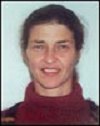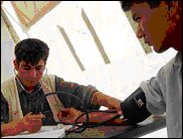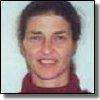Joy O'Hazy, MD, is currently with MSF in northeast Iran, where she provides medical care to Afghan refugees. Here she describes running a mobile clinic that sees up to 4,000 patients a month
|

|
Life is interesting and challenging here. I have now worked three and a half months of my six-month contract here in Iran. Doctors Without Borders/Médecins Sans Frontières (MSF) has been in Iran since 1996 establishing a medical service for Afghan refugees in Mashad, a city in the North Eastern province of Khorasan - which borders Afghanistan.
Over the last four to five years, mobile clinics have been up and running now covering seven different areas of the city. The mobile clinic sees 3,500 to 4,000 patients every month and is very different to the permanent clinic in Gulshar, it's a completely different scene.The mini-bus comes at 12.45pm each day and all the staff going on that clinic have to help transfer all the tables, chairs, drug boxes, nurses and doctors' bags from the pharmacy store room downstairs to the bus. Then 14 staff drive to the predetermined site, which can be 10 to 20 minutes away from the fixed base.
I'll describe our experience at Ghale Sakhteman - where we might have between 150 to 200 people come to the afternoon clinic. The bus pulls up and there could be 10 to 50 people waiting outside the entrance door to the mosque courtyard. The staff and sometimes waiting male patients, together unload the bus and make a human chain to get the items into the clinic area.

An MSF health post on the Iran/ Afghanistan border. Photo © Sebastian Bolesch |
Because the people in these mobile clinic areas have been given back their medical files (in case they decide to return to Afghanistan) the nurse has to collect the first 20 files and these people are allowed to wait in the courtyard area. Again three crowd controllers are used - one at this door, one at the entrance to the mosque and one at the curtain in the waiting area to see the doctors. In the open plan mosque we set up opaque sheets separating the waiting area from the doctors' examination area. The doctors each have small tables in a common area and one examination stretcher. The noise levels can be quite high with young babies crying, people coughing, people being directed by the nurses and crowd controllers. In the midst of all this humanity and bustling the doctors are very calm and focused!
Two or three people might accompany each patient to see the doctor, particularly those with children and the disabled. This really does make it harder to listen to people's chests through the constant noise and activity. In this setting women are unable to be examined for gynecological problems and are usually sent to the fixed clinic at Gulshar for privacy reasons.
People will often have multiple complaints - poor vision, joint pains and a running fever, and you are more likely to see your follow-up patients here too. There is very rarely acute malnutrition now, although there is a degree of low-level chronic malnutrition because most people subsist on lavash (the flat Iranian bread) and tea.
When it starts to get dark around 4:30 or 5pm we have to quickly finish our consultations to allow access to the mosque. Because when dusk arrives the mullah will start his calls to prayers over the PA system.
At this particular clinic the doctors will see 30 to 40 patients each but even with four of us there are still a number of patients who have not been consulted by the end of every clinic. Finally we go through the reverse order of setting up the clinic and start packing everything up again for the return trip to Gulshar. All these services are provided free to the people that have been assessed by our home visitors as being poor or very poor according to a certain criteria.
After the fall of the Taliban regime in November 2001, millions of Afghan refugees have been under pressure to return to Afghanistan, despite the continuing insecurity and difficult living conditions there. While speaking out against the forced return of refugees, MSF continues to assist Afghans in several Iranian cities, providing basic health care and serving as a witness to help uphold their right to voluntarily return to their country. In Mashad and Zahedan, MSF provides care to refugees in collaboration with the Iranian health system, and carried out 65,000 medical consultations in 2002. MSF also runs mobile clinics in Zahedan and a health post in Nyatak refugee camp near Zabul, home to 5,000 people.




